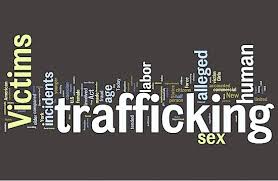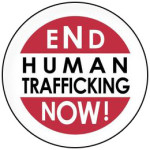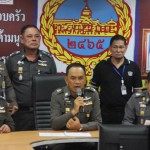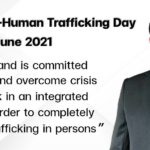
All 10 member states of the Association of Southeast Asian Nations (ASEAN) resolved to strengthen their laws and enforcement against human trafficking and establish a fund to assist victims of the crime, during a follow-up meeting last week to the regional conference initially organized and hosted by Thailand last month.
Diplomats and government representatives from the 10 countries met in Kuala Lumpur, the capital of Malaysia, to sustain and further the efforts that began in Bangkok. Representatives of United Nations agencies and the United States government were also present. Those attending the emergency ministerial meeting on irregular migration said each country is already well equipped to deal with the “heinous crime” of human trafficking. More cooperation between member states, however, is essential to defeat the transnational syndicates involved in trafficking.
Those in attendance announced that they will draft an ASEAN Convention on Trafficking in Persons that will be adopted and signed by member states at the 10th ASEAN Ministerial Meeting on Transnational Crime in September, also in Kuala Lumpur, as Malaysia is the ASEAN chair country this year. In addition, they will formulate a regional Plan of Action to address the crisis.
Prime Minister Prayut Chan-o-cha of Thailand initiated the regional effort to turn the tide against human trafficking after revelations of virtual prison camps and graves of trafficked migrants in the Kingdom’s southern areas near the border with Malaysia. Since then, even more camps and graves were discovered within Malaysia itself.
Thailand has already amended its laws to give authorities more power to battle traffickers and to better protect victims and informants who help with information about trafficking. Thai police and security forces recently arrested over 100 suspected traffickers, including an army general, police officers and local politicians in the South.
At the time of the Bangkok meeting, approximately 7,000 migrant ‘boat people’ were adrift on rickety boats on the waters of the Indian Ocean after being abandoned by smugglers who feared arrest by the region’s navies. Most trafficked migrants originated in either Myanmar or Bangladesh and many were members of the Rohingya ethnic minority, which the United Nations has called one of the most persecuted ethnic groups in the world.
Malaysia and Indonesia have taken in over 4,600 migrants, and others returned to Myanmar and Bangladesh. Today, few boats with trafficked migrants are on the seas in Southeast Asia, but the member states realize this will only be a temporary respite unless they address the causes and issues in a comprehensive manner.
The member states also said they would establish a fund to help victims of trafficking. Singapore made the first donation with $200,000. Malaysia proposed that each country in the region contribute $100,000.
For more information and updates about Thailand’s policies and actions against trafficking in persons and related issues, visit www.thaianti-humantraffickingaction.org




